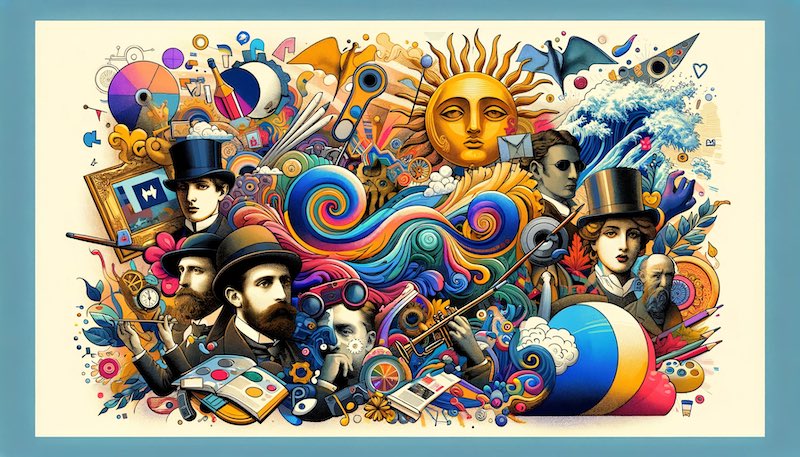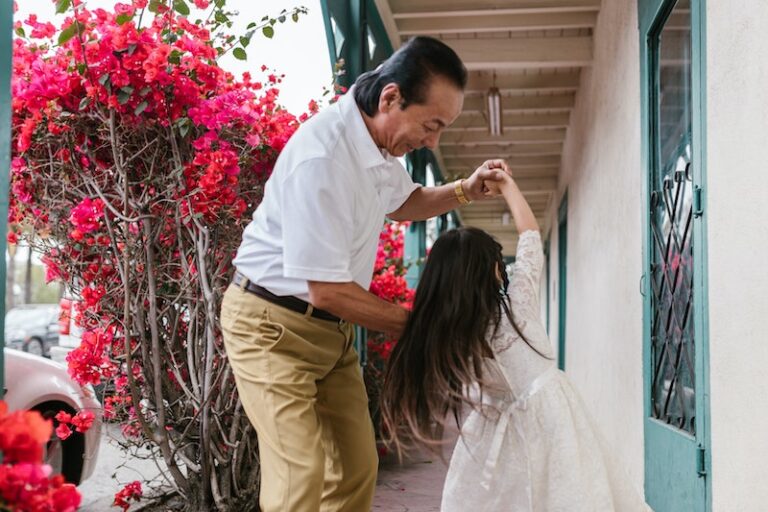Unveiling the Rich Tapestry of French Culture: A Journey Through Time

The rich cultural heritage of France encompasses art, fashion, gastronomy, and centuries of history.
Introduction
In the heart of Western Europe lies a nation that has been a beacon of art, fashion, gastronomy, and architecture for centuries. France, with its rich history and diverse landscapes, has cultivated a culture that is revered globally. From the bustling streets of Paris to the serene countrysides, every corner of La Belle France beckons with its unique allure, inviting one to immerse themselves in its rich heritage.
This journey through time unveils the tapestry of customs, traditions, and influential figures that have shaped this exquisite nation, weaving together the threads of history, innovation, and artistic expression that define French culture.
Quick Navigation
The Historical Foundations
The Gallo-Roman Era
Before the glittering era of kings and queens, the foundations of French culture were being laid during the Gallo-Roman period. A prominent figure of this time was Vercingetorix, a gallant Gallic leader born in Auvergne around 80 BC. Known for his valiant efforts to unify Gaul, his leadership marked a significant chapter in the annals of French history, leaving an indelible mark on the nation’s cultural narrative.
The Influence of Charlemagne
As time progressed, the mantle of leadership passed to other notable figures, including Charlemagne, also known as Charles the First. Praised for restoring the great Western Empire and instituting a free school system, Charlemagne’s reign was a beacon of enlightenment and progress. His efforts in unifying various regions under a single rule laid the groundwork for the modern French state, fostering a culture of education and intellectual growth.
The Era of Kings and Queens
The subsequent centuries saw the rise of powerful monarchs who left a lasting impact on French culture. Louis XIV, known as the Sun King, embarked on ambitious projects that showcased the grandeur of French art and architecture. His reign, characterized the expansion of the magnificent Versailles palace, became a symbol of France’s power and influence in Europe.
Meanwhile, figures like Marie-Antoinette brought a touch of elegance and sophistication to the royal court, fostering a golden age of fashion and entertainment. Though her legacy is complex, her influence on French style and cultural refinement remains significant to this day.
Icons of French Culture
Art
The French art scene has been a vibrant tapestry of evolving styles and movements, leaving an indelible mark on the global art landscape. The 19th and early 20th centuries were particularly transformative, giving birth to revolutionary art movements such as Impressionism and Art Nouveau.
Artists like Claude Monet and Henri de Toulouse-Lautrec captured the essence of French society through their vivid and evocative works, inviting viewers into a world of beauty, emotion, and innovation. The Louvre Museum in Paris stands as a testament to France’s commitment to preserving and celebrating artistic achievement across the ages.
Fashion
When it comes to fashion, France stands unrivalled as the epitome of style and elegance. The streets of Paris have long been the runway for the world’s most prestigious fashion houses, including Dior and Chanel. The concept of Haute Couture, or high fashion, originated in the fashion ateliers of Paris, where designers like Coco Chanel revolutionized the way people dressed, introducing timeless pieces that blended sophistication with comfort.
Today, French fashion continues to set trends, embodying a perfect blend of tradition and modernity. Paris Fashion Week remains one of the most prestigious events in the global fashion calendar, attracting designers, celebrities, and fashion enthusiasts from around the world.
Gastronomy
French cuisine is a delightful journey for the senses, offering a rich and diverse culinary experience. The concept of Haute Cuisine, which translates to high cooking, epitomizes the French approach to food – a perfect blend of tradition, innovation, and a deep respect for quality ingredients.
From the rustic charm of Provençal dishes to the refined elegance of Parisian gastronomy, French cuisine offers a symphony of flavors, textures, and aromas that are sure to tantalize even the most discerning palate. The French dining experience, with its emphasis on savoring and appreciating food, reflects a broader cultural appreciation for the finer things in life.
“Cooking is not a service, it is a way of life.” — Paul Bocuse, legendary French chef
Legendary Figures
Joan of Arc
In the annals of French history, few figures stand as tall as Joan of Arc. A young peasant girl who rose to become a military leader during the Hundred Years’ War, Joan’s courage and conviction inspired a nation. Her unwavering faith and determination led to a series of military victories, cementing her status as a national heroine and a symbol of French resistance and unity.
Even centuries after her death, Joan of Arc continues to be a powerful symbol in French culture, representing resilience, patriotism, and the indomitable human spirit. Her legacy transcends history, inspiring countless works of art, literature, and music.
Napoleon Bonaparte
The Napoleonic era marked a period of radical transformation in France. Napoleon Bonaparte, a military genius and a visionary leader, embarked on a journey to reshape French society. His reign saw the introduction of the Napoleonic Code, a legal framework that laid the foundations for modern civil law.
Napoleon’s influence extended beyond the borders of France, leaving a lasting impact on European politics and society. His complex legacy encompasses military brilliance, political reform, and cultural patronage, making him one of the most studied and debated figures in Western history.
Modernity and Contemporary Influence
The Industrial Revolution in France
The industrial revolution ushered in a new era of innovation and development in France. The nation witnessed significant advancements in technology, infrastructure, and urban planning. Figures like Baron Haussmann played a pivotal role in transforming Paris into a modern city, introducing wide boulevards and architectural marvels that continue to captivate visitors to this day.
This period also saw the inception of iconic structures like the Eiffel Tower, a symbol of French ingenuity and a testament to the nation’s progress during this transformative era. Initially controversial, the Eiffel Tower has become one of the most recognizable landmarks in the world and a powerful symbol of French cultural identity.
Cultural Contributions of François Mitterrand
In the latter part of the 20th century, President François Mitterrand embarked on a series of cultural projects that further enriched the French cultural landscape. Initiatives like the Fête de la Musique, a nationwide music festival celebrating the summer solstice, became a staple in the French cultural calendar.
Mitterrand’s tenure also saw the inception of architectural marvels like the Louvre Pyramid and the Grande Arche de la Défense, blending tradition with modernity and showcasing France’s commitment to fostering art and culture. These bold architectural statements reflect France’s ongoing dialogue between its rich historical heritage and its forward-looking vision.
French Culture in the Digital Age
Today, French culture continues to evolve and adapt to the challenges and opportunities of the digital age. French art influencers leverage social media platforms to showcase and promote diverse artistic expressions, while musicians blend traditional French sounds with contemporary global influences.
France’s commitment to cultural preservation and innovation remains strong, with substantial investments in cultural institutions, education, and creative industries. This balance between honoring tradition and embracing change ensures that French culture continues to thrive and inspire in the 21st century.
Conclusion
As we traverse through the annals of French history, it becomes evident that the nation’s culture is a rich tapestry woven with threads of history, art, fashion, and culinary excellence. From the gallant figures of yesteryears to the modern leaders who have shaped the nation’s trajectory, France stands as a beacon of cultural richness and diversity.
The enduring appeal of French culture lies in its remarkable ability to preserve its heritage while continuously reinventing itself. Whether through the timeless works of its artists, the innovative designs of its fashion houses, or the exquisite flavors of its cuisine, French culture continues to captivate and inspire people around the world.
As we step into a new era, France continues to evolve, embracing the new while revering the old, promising an enriching journey for those who wish to explore the depths of French culture. This cultural odyssey through France reveals not just the story of one nation, but a significant chapter in the shared human experience of creativity, resilience, and the pursuit of beauty in all its forms.
You May Also Like
We Are One: An Exploration of Unity and Oneness in Music
Discover how music transcends cultural boundaries and unites people around the world through shared rhythms and harmonies.
Read more →10 French Musicians Everyone Needs to Know
Explore the influential sounds and styles of ten essential French musicians who have shaped the global music landscape.
Read more →French Art Influencers: Cultural Impact
Learn how contemporary French art influencers are reshaping cultural landscapes through digital innovation and creative expression.
Read more →


